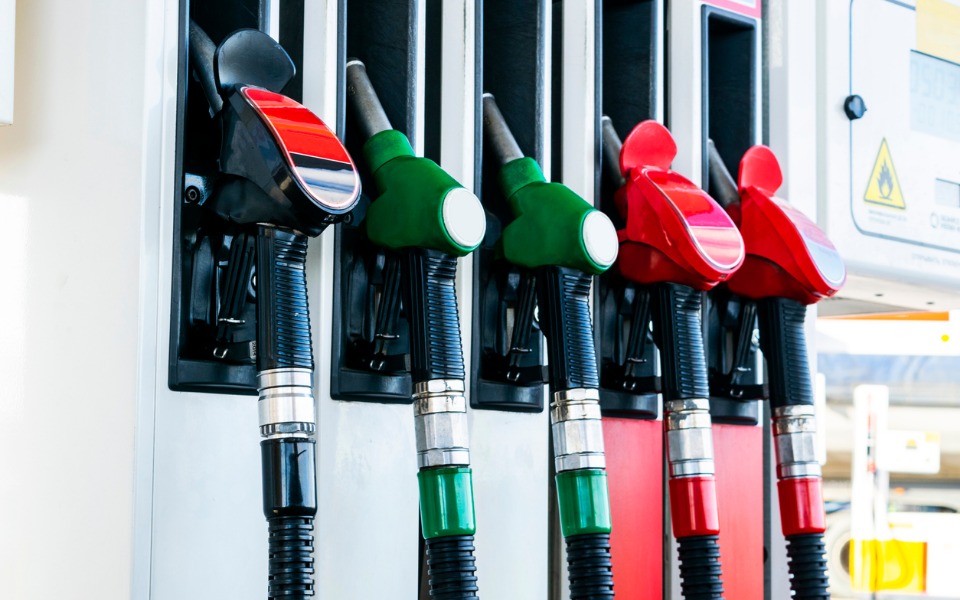
Windfall tax to recover ₹1 lakh crore revenue lost in excise cuts on fuel: Report

The windfall tax on oil produced within India and fuel exported overseas will make up for more than three-fourths of the revenue that the government lost when it cut excise duty on petrol and diesel to cool soaring inflation, according to a report citing industry sources.
On July 1, the Ministry of Finance said that a cess of ₹23,250 per tonne (by way of special additional excise duty – SAED) has been imposed on crude oil produced domestically. With this, India joined a select league of nations globally that have taxed windfall gains accruing to oil companies from soaring energy prices.
Also read: States demand more cuts on fuel tax, say slashing VAT will drain revenue
The government also slapped a ₹6 per litre tax on the export of petrol and jet fuel (ATF) and ₹13 a litre on the export of diesel effective July 1.
“Crude prices have risen sharply in recent months. The domestic crude producers sell crude to domestic refineries at international parity prices. As a result, domestic crude producers are making windfall gains. Taking this into account, a cess of ₹23,250 per tonne has been imposed on crude. Import of crude would not be subject to this cess,” the ministry said.
“Crude is sold by domestic producer at international parity price. This cess will have no adverse impact, whatsoever, on domestic petroleum products/fuel prices. Further, small producers, whose annual production of crude in the preceding financial year is less than 2 million barrels will be exempt from this cess. Also, to incentivise an additional production over the preceding year, no cess will be imposed on such quantity of crude that is produced in excess of last year’s production by a crude producer,” it added.
Also read: Petrol, diesel prices reduced as Centre cuts excise duty
The tax on crude oil producers like Oil and Natural Gas Corporation (ONGC), Oil India Ltd and Vedanta Ltd alone will fetch the government ₹69,000 crore annually considering 29.7 million tonnes of oil production in 2021-22 fiscal (April 2021 to March 2022), two sources with knowledge of the calculations said, according to a PTI report.
For the remaining nine months of the current fiscal, the levy would get the government almost ₹52,000 crore if the tax remains in place till March 31, 2023. On top of this, the new tax brought in on the export of petrol, diesel and ATF would bring in additional revenue.
“India exported 2.5 million tonnes of petrol, 5.7 million tonnes of diesel and 797,000 tonnes of ATF during April and May. Even if these volumes fall to a third due to the new levy and other restrictions imposed, the government would still be richer by at least ₹20,000 crore if the tax continues till March 2023,” one of the sources said.
Reliance Industries Ltd operates a 35.2 million tonnes a year only-for-exports oil refinery at Jamnagar in Gujarat and that refinery is expected to continue overseas shipments even with the new tax, the second source said. Some exports are also expected from the firm’s adjoining 33 million tonnes a year refinery that is meant to cater to the domestic market.
“Reliance has a fuel retailing joint venture with BP and that joint venture operates 1,459 out of 83,423 petrol pumps in the country. Even after meeting the full requirement of the 1,459 petrol pumps and selling some fuel to PSU retailers, it still would be left with exportable surplus,” the source said.
Similarly, Rosneft-backed Nayara Energy operates a 20 million tonnes a year refinery at Vadinar in Gujarat. It has 6,619 petrol pumps whose full requirement would be less than about 12 million tonnes of petrol, diesel and ATF that the refinery produces annually.
The two taxes together will accrue as much as ₹72,000 crore or over 85% of the revenue that the government lost from cutting excise duty on petrol and diesel, sources said.
The government had on May 23 cut excise duty on petrol by ₹8 per litre and diesel by ₹6 a litre to cool record inflation. These excise cuts, according to a statement made by Union Finance Minister Nirmala Sitharaman at that time, would dent the exchequer by ₹1 lakh crore annually.
For the remaining 10 months of the current fiscal, the revenue foregone was about ₹84,000 crore. And the windfall tax will help bridge 85% of this deficit, sources said.
The export tax is to deter companies such as Reliance and Nayara from preferring overseas markets over domestic supplies.
Giving out reasons for the introduction of the new levies, Sitharaman had on Friday stated that refiners earned “phenomenal profits” from shipping overseas while reducing domestic supplies. “We don’t grudge people earning profits,” she had said.
“But if oil is not being available (at petrol pumps) and they are being exported… exported with such phenomenal profits. We need at least some of it for our own citizens and that is why we have taken this twin-pronged approach.”
(With inputs from agencies)


